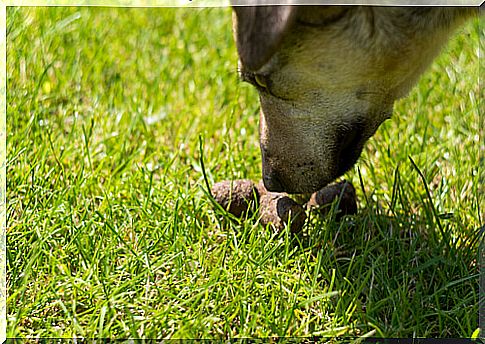Intestinal Parasites In Dogs: How To Detect And Prevent Them

It is normal that sometimes we face situations that we do not know how to handle and that make us uneasy. Therefore, it is good to know how to identify certain types of diseases and ailments that may afflict our dog at a certain time. One of them is intestinal parasites in dogs.
Here are some tips to help you determine if your dog has intestinal parasites and how you should treat them.
Prevention of intestinal parasites in dogs
Intestinal parasites can be a very serious problem, since they can cause the death of our dog, especially when they affect puppies. However, many of the parasites can be easily detected and there are numerous ways of prevention:
- The easiest way to avoid intestinal parasites is to give your dog doses of intestinal dewormers according to the recommendation of the veterinarian. In puppies it is suggested that they be administered once a month.
- Take care of what your dog eats. Sometimes intestinal parasites in dogs are acquired through contaminated food.
- Avoid letting your dog come into contact with the feces of other dogs.
- Collect your pet’s feces. This is also a matter of public health and citizen coexistence. Collecting your pet’s waste will avoid bad odors and a large number of problems related to the health of your pet and the members of your family group.
- Don’t allow other dogs to relieve themselves where your dog usually does. If this happens you must pick it up immediately.

Symptoms
Dogs with intestinal parasites develop symptoms that can be detected at home. When the infestation is in an early stage, the first thing that appears is itching. Therefore, you can see that your dog is crawling while sitting scratching his anus. It will also bite the area persistently because, as the worms spread, they cause discomfort.
When the infestation is advanced, the worms can leave your dog’s body through feces, so you can tell with the naked eye. However, the eggs are not so easy to detect, hence the importance of ensuring that your pet does not come into contact with the excrement.
The dog will also lose weight quickly, as the parasites feed on the nutrients your pet eats. This can be a bit misleading, as worms sometimes generate gas that causes abdominal bloating, so the dog will appear normal.
However, when you look closely, you can see the ribs and hip bones through the fur. In extreme cases, damage to the intestines can occur, which may cause bleeding in the stool. In case you notice any of these symptoms, it is best to take your dog to the vet before giving any kind of medication.
Treatment
Intestinal parasites in dogs, once diagnosed, are treated with intestinal dewormers. There are multiple classes of parasites that attack different parts of your pet’s body, so it is important that the specific antiparasitic is applied to the affected area.

On some occasions, the treatment will need to be repeated, especially if the infestation is widespread. It is very important that this is always done under the supervision of the veterinarian and not on your own.
For example, some owners often give pets laxatives to expel parasites, thus destroying the bacterial flora in their intestines.
Your health is your health
Parasites are very difficult to control, as they are adapted to survive in different organisms, including yours. You must take special precautions when you detect that your dog has parasites, as they can infest you too.
Sometimes parasites can reach your body by breaking the skin, for example when you walk barefoot. If you have babies at home, you must pay special attention, as this can generate fatal problems for them.
If you detect that your dog is infested, the most prudent thing is to visit the doctor, as parasites can cause the appearance of other secondary diseases, which will require, as in the case of your pet, medical treatment.









